Honda Accord Vs Honda Civic: Which Sedan is Right For You?

Whether you’re a loyal Honda fan or simply shopping for the best sedans out there, there’s a good chance you’ll be cross-shopping the Honda Accord vs Honda Civic.
Both the Civic and Accord have plenty of awards to their names: the former nabbed AutoGuide.com Car of the Year in 2016 and then again in 2022 .The 10th-generation Honda Accord won as the 2018 North American Car of the Year from the prestigious NACTOY jury when it was new.
Honda debuted the 11th-generation Civic in early 2021, and updated the Accord only a few months prior. Both of these four-doors raise the bar in their segments, with smart driving dynamics, Honda’s sterling reputation for reliability, and a tradition of high resale value. But which one is better for you? We’ll walk you through what the Civic and Accord have in common, what differs between the two, and the pros and cons of each.
Get a Quote on a New Honda Accord or CivicCabin Space
Accord: The Accord’s interior inches ever closer to the realm of premium models, and the ’21 refresh only emphasizes that. Material quality is uniformly high, and all the controls are laid out logically. A push-button shifter is a primary differentiator between it and its smaller sibling.
Breaking out the measuring tape, the Accord offers 39.5 inches (1,003 mm) of headroom in front and 37.5 inches (953 mm) in back. Models with the moonroof trim 2.0 inches (51 mm) for driver and front passenger, and about a tenth of that from the rear. Legroom is 42.3 and 40.4 inches (1,074 and 1,026 mm) front and back, respectively.
Civic: Honda decluttered the Civic’s interior for the 11th-generation model. A strip of mesh now bisects the dashboard, adding visual interest and cleverly hiding the air vents. A trio of rotary dials handle climate controls, all with a satisfying click. In a nod to the Civic’s daily driver status, Honda’s designers have used a less fingerprint-prone material for the center console—no more piano black. And yes, there is a volume knob.
SEE ALSO: 2022 Honda Civic Review: First DriveAs the Civic grows, it offers up almost the same amount of space as its bigger sibling. Case in point: headroom is close at 39.3 and 37.1 inches (998 and 942 mm) in tin-topped models, and the Civic actually beats the Accord when both are equipped with moonroofs, with 37.6 inches (955 mm) up front. Legroom is an identical 42.3 inches (1,074 mm) for front row occupants; rear seat space is exactly 3.0 inches (76 mm) less than in the Accord.
Bottom Line: Both the Civic and Accord feature some of the classiest interiors in their respective classes. We prefer the newer Civic’s aesthetic, but there’s no faulting the Accord’s vibe, either. And if you need more space, specifically for long-legged rear-seat passengers, the Accord has the advantage.
Cargo Space
Accord: The Accord has a very large trunk that holds 16.8 cubic feet (476 L) of cargo. The rear seats fold down 60/40 so you can hold longer items in the trunk.
Civic: The Honda Civic, though smaller than the Accord, still has a sizable trunk with 14.8 cu-ft (419 L) of cargo space in all trims bar the Touring, which features 14.4 cubes (408 L).
SEE ALSO: Honda Accord vs Mazda6: Which Sedan is Right for You?Bottom Line: It should come as no surprise that the bigger car can hold more. The Civic isn’t too far off, however, and should prove more than enough for a small family.
Technology and Features
Accord: The Accord now includes goodies like a head-up display, wireless Apple CarPlay and Android Auto, HondaLink, and Wi-Fi capability, depending on trim. No matter which trim buyers go for, they’ll find an 8.0-inch infotainment screen atop the dashboard. It runs the latest version of Honda’s user interface, which uses an easy-to-read tile system.
Civic: Lower trim Civics use a 7.0-inch touchscreen, while the top Touring bumps it up to an Accord-beating 9.0 inches. You’ll find wireless phone mirroring with the larger screen; the rest of the range still requires a cord. The Touring also benefits from a wireless charger, and includes USB ports in both rows—your back-row friends will thank you. HondaLink is here too, but the Civic doesn’t offer a head-up display or Wi-Fi capability.
SEE ALSO: Toyota Corolla vs Hyundai Elantra ComparisonBottom Line: The Accord definitely has more tech and a lot of it is very useful. If you can afford the Accord, the tech upgrades definitely make it worth your while.
Powertrains: Honda Accord vs Honda Civic
Accord: The Accord is available with two turbocharged engines and a hybrid option. The base engine is a 1.5-liter turbocharged four-cylinder with 192 horsepower and 192 lb-ft of torque. The upgraded engine is a 2.0-liter turbo four-cylinder with 252 hp and 273 lb-ft of torque. As of 2021, there is no manual transmission option; the 1.5-liter sticks to a continuously variable transmission (CVT), while the larger engine hooks up to a 10-speed automatic.
The Accord also comes in Hybrid form. This model uses a naturally-aspirated 2.0-liter four-cylinder and a novel wet-clutch pack in place of a traditional transmission. It splits the difference between the other engines, providing 212 horsepower and 232 lb-ft of torque.
Civic: The base Honda Civic is powered by a naturally aspirated 2.0-liter four-cylinder engine with 158 horsepower and 138 lb-ft of torque. There is also an available turbocharged 1.5-liter engine with 180 hp and 177 lb-ft of torque. Both engines can only be had with a CVT in sedan form; only the hatchback offers a six-speed manual transmission.
Bottom Line: Honda says both the Accord and the Civic can run on regular unleaded fuel, even in the turbo engines, which typically require premium fuel. If your priority is better fuel economy, the Civic is the way to go. You get better performance with the Accord, but it comes with a slight fuel economy penalty and it is more expensive.
Fuel Economy
Accord: The Accord will score up to 38 mpg highway with the 1.5-liter. With an even 30 mpg in the city, you’re looking at a 33 mpg average. The Sport and Touring trims cut those numbers down a bit, to 29 mpg city, 35 mpg highway, and 32 mpg combined. Check the box for the larger 2.0-liter and those numbers dip further, to 22/32/26 mpg combined.
The Accord Hybrid stretches a gallon so much further, posting 48 mpg in the city and 47 mpg on the highway. Like the gas-only model, the Sport and Touring trims take a hit—a pretty substantial one too, with 44 mpg city, 41 mpg highway, and 43 mpg combined.
Civic: 2.0-liter-equipped Civics will do 30–31 mpg city, 37–40 mpg highway, and 33–35 mpg combined. The top Touring trim sees little penalty for using the turbocharged motor, posting 31/38/34 mpg, respectively. Top honors go to the EX trim, however; with the 1.5-liter, it out-distances everything else at 33 mpg city, 42 mpg highway, and 36 mpg combined.
There is no Civic Hybrid; instead, the Insight stands in for that role. Based on the previous 10th-gen Civic, it posts 55/49/52 mpg, respectively, which drops to 51/45/48 mpg in Touring trim.
SEE ALSO: 2021 Hyundai Elantra Review: Going Nitpicking, or at Least Trying ToBottom Line: When both equipped similarly (1.5-liter models), the Accord is never far off the Civic’s fuel economy figures. But it’s the Civic (and Insight) that top the charts here.
Safety
Accord: Honda Sensing, the automaker’s suite of safety technology, comes standard in the Accord. It includes collision mitigation braking, road departure mitigation, forward collision warning, lane departure warning, lane keep assist, adaptive cruise control, traffic sign recognition, and auto high-beams. Blind-spot monitoring with rear cross-traffic alert is available on higher trims.
Civic: The Civic also includes Honda Sensing as standard across the board. You’ll find all the same lineup of driver assists as in the Accord, with the added benefit of Traffic Jam Assist, which combines adaptive cruise control and lane-keep assist in low-speed situations to ease driver stress. Blind-spot monitoring shows up on the EX, with the Touring adding cross-traffic alert.
Bottom Line: Honda doesn’t skimp on the standard safety kit with either of these sedans. You can’t go wrong with either.
Styling: Honda Accord vs Honda Civic
Accord: Honda only produces the current Accord in five-seat sedan form. Previous generations included a coupe and even the high-riding (and ahead of its time) Crosstour. Clean styling accentuates the Accord’s length, and while it may have seemed a little strange when new, we think the Accord has aged gracefully. If anything, it’s almost a little too conservative.
Civic: For the 11th-gen Civic, Honda has dramatically simplified the Civic’s styling. Instead of looking like a Gundam spin-off, the Civic is cleaner, more upright, and has a larger glasshouse than before. Squint a bit, and you’ll see some of the classic ’90s-era shape. Well, for the sedan, anyway: the coupe is no more. A hatchback is still part of the lineup, however.
Bottom Line: Both of these cars offer clean, crisp styling that’s unmistakably Honda. If you want access to the vehicle from the rear of the car, the Civic is the only option offering a hatchback.
Pricing
Accord: Pricing for the Honda Accord starts at $27,615 for the LX, destination included. The Sport 1.5T slides in under $30,000, with the $33,935 EX-L being the top 1.5T trim. There are two 2.0-liter models: the $34,755 Sport and the $39,545 Touring.
The Accord Hybrid comes in four trims, starting from the base ($28,815) before moving through Sport ($32,165) EX-L ($35,135) and Touring ($38,685).
Civic: With the demise of the Civic LX, the entry point to the lineup is now that Sport Sedan which will set you back $25,745, including destination. The EX adds in the turbo motor (though not in Canada), and carries a $27,145 sticker. Finally, the top Civic Touring, also using the 1.5-liter, will run buyers $30,745 all-in. Hatchback models mimic the sedan stablemates in terms of trim options, with the Sport costing $26,545 , followed by the EX-L ($29,240), and the Sport Touring ($31,645)
Bottom Line: Naturally, the Civic undercuts its bigger brother, but the gap has closed. A few higher trim Civic models can run richer than an Accord. Our personal pick though, with its swanky new interior, is the Civic Touring that just eclipses the $30,000 mark.
The Verdict: Honda Accord vs Honda Civic
In the battle of the Honda Accord vs Honda Civic, both vehicles offer similar levels of standard safety features and impressive driving dynamics. The determining factors? Budget, and space.
The larger Accord offers more of the latter, and its available 2.0-liter turbo is muscular and fun. The Hybrid trades a little performance—but not much—for vastly improved fuel economy. If either of those advantages appeal to you, and you can swing the extra coin, the Accord is the car for you. It makes it very hard to justify moving up to luxury brands.
Being newer, the Civic offers a great mix of technology and fuel economy. It saves you money, both at the pumps and on the showroom floor. If you don’t need the extra space of the Accord (and it’s not that much these days), the Civic makes the stronger case for itself.
Become an AutoGuide insider. Get the latest from the automotive world first by subscribing to our newsletter here.

Kyle began his automotive obsession before he even started school, courtesy of a remote control Porsche and various LEGO sets. He later studied advertising and graphic design at Humber College, which led him to writing about cars (both real and digital). He is now a proud member of the Automobile Journalists Association of Canada (AJAC), where he was the Journalist of the Year runner-up for 2021.
More by Kyle Patrick



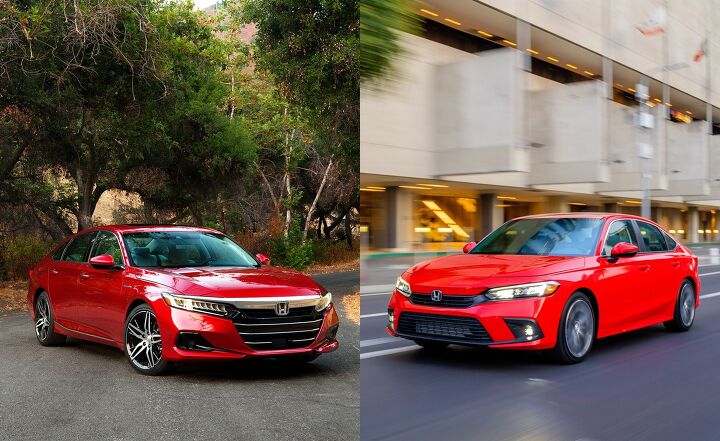










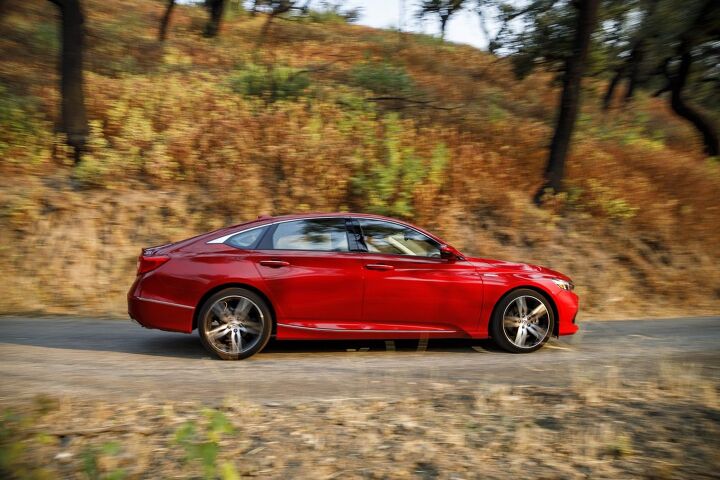

















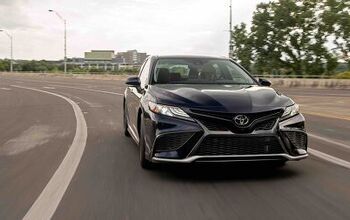
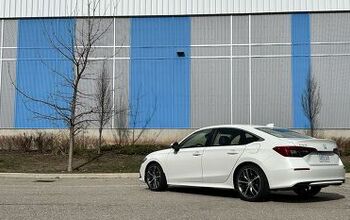

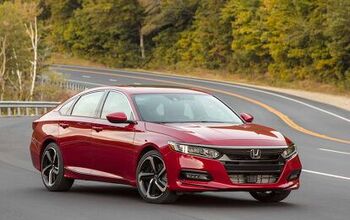
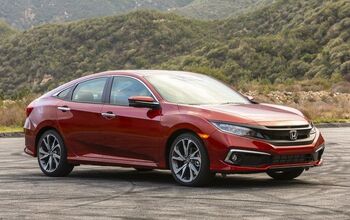
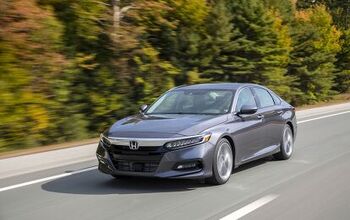
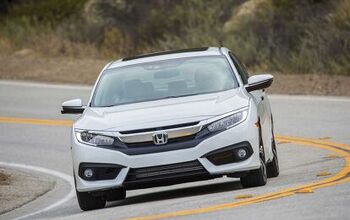




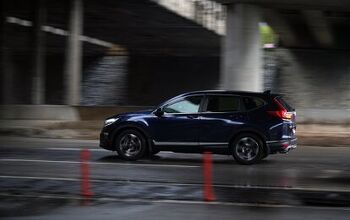

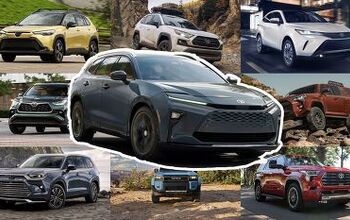



Comments
Join the conversation
The Civic (and Insight) has an advantage in that it is smaller and fits into parking spaces and garages easier.
I applaud Honda for keeping a manual transmission available in both cars and especially in the Accord Sport w/the 2.0t engine. The real question will be how many people will go that route and how long will that option last as many drivers opt for the auto. I wish touring car racing series used mid-size sedans and not compact ones; that way would could see Accord/Mazda6 race-prepped cars and not just Civic/Mazda3 ones. I wonder if there is room in the market for an Accord Si or other "Type" if you know what I mean?